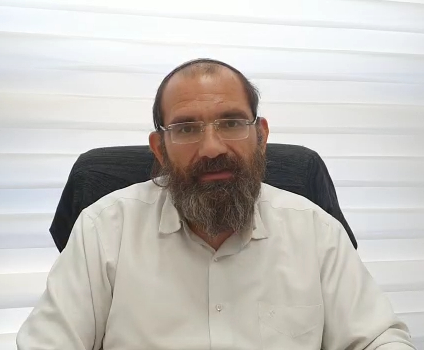Thursday, August 12, 2021, 10:32 Today, the High Court of Justice will judge a petition filed by Honenu regarding a request by a youth under an administrative order to go on a trip. A., a 19-year-old resident of the coastal plain, is forced under the order to stay at his mother’s house. A. and his family requested permission to take a one-day trip to the north of Israel, during which his mother, his brother, and his brother-in-law would supervise him. However, Major-General Ori Gordin, who had signed the order, rejected the request “after he weighed the entirety of the relevant considerations.”
Following the refusal, Honenu Attorney Menashe Yado filed a petition with the High Court of Justice explaining why the trip does not constitute a danger to violating the order. Yado also sharply criticized the practice of issuing administrative orders, which greatly violate citizens’ rights, and stated that “there is no correlation between the system of criminal law enforcement and the system of administrative law enforcement.”
Yado explains that in a criminal case, someone detained until the end of proceedings knows what the evidence against him is, has the right to defend himself, and has the opportunity to receive legal representation, and if he wants, he can file an urgent request for an exception from his conditions. However, in an administrative detention there is no system of judicial review over the decision by the administrative military authority to reject the request.
Yado criticized the rejection by the GOC of the Home Front Command, Major-General Ori Gordin: “The decision to reject the order is not justified, is not in line with any norm, and the respondent (Maj-Gen Gordin) is the witness, the litigant and also the judge. Nothing he says is open to any oversight whatsoever. The heavy-handedness of this situation is obvious.”
The petition emphasizes that the refusal by Maj-Gen Gordin is unusual in its severity. “It is difficult to see why it is inappropriate to give approval for a one-day trip to the north under the supervision of his mother. The petitioner must be allowed to take a breather with his family. The proceedings against him are administrative and he has not been convicted.”
Yado testified that he is acquainted with the youth and his family and the risk of his damaging the security of the State of Israel or of the public as a result of a one-day trip to the north is negligible and that the administrative proceedings are violating his fundamental rights, without a trial and without a justifiable reason.
The Home Front Command claimed that the petition should be rejected. Yado sharply criticized the claims by the Home Front Command that A. could possibly violate the order “in the Jordan River, when his mother and all of his family have obligated themselves to supervise him. Particularly there the petitioner will not violate the order. He will be busy with his family vacation.”
Yado objected to the wording of the response, stating that, “the fact that the respondent used extremely general and vague language indicates that prima facie there is no specific danger.” Yado explained that the core of the petition is “the absence of parameters for review. Someone who is under an administrative order does not have the means, not institutional, because there are no appellate courts, not evidentiary, because no evidence has been presented, and not judicial, because there is no benchmark by which to measure the limits, even though they acutely restrict his freedom.”
At the end of his response, Yado asked the court to rule that since the trip does not pose a clear danger, a danger that cannot be counteracted by supervision by his mother, his brother and his brother-in-law, the family should be allowed to go on a one-day trip to the Jordan River.
Honenu Attorney Menashe Yado, who is representing A.: “We filed the petition and paid a 1,800 NIS fee in an attempt to allow the youth to go on a one-day trip to the north under the supervision of his family. Regarding administrative orders served to right-wing activists, there is no democracy in Israel. The GSS and the army allow themselves to do whatever they want, without any judicial review, without any explanations, justifications, legal hearings or even telling the recipients of the orders why they’ve received them, so that they can respond. The army and the GSS have apparently gone way too far in this case, which means that there is a chance that the High Court of Justice will intervene, and therefore we filed a petition.”

